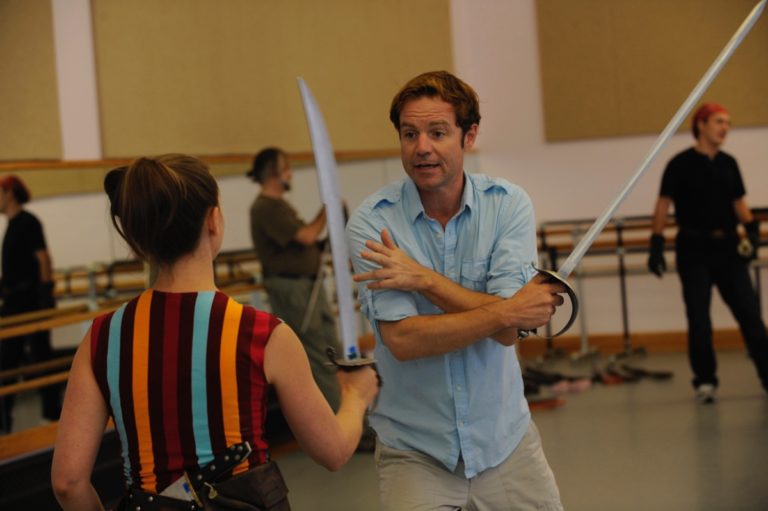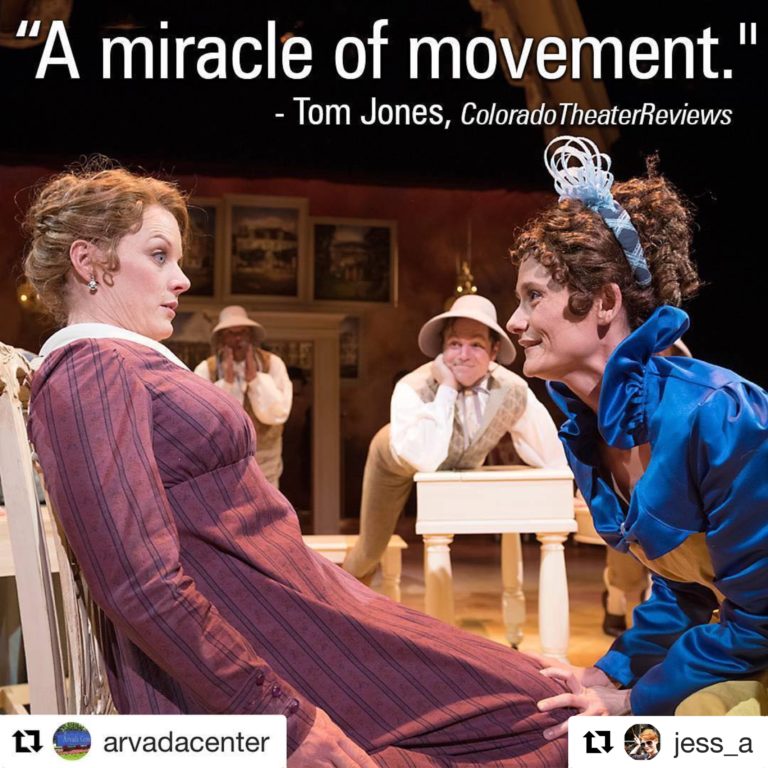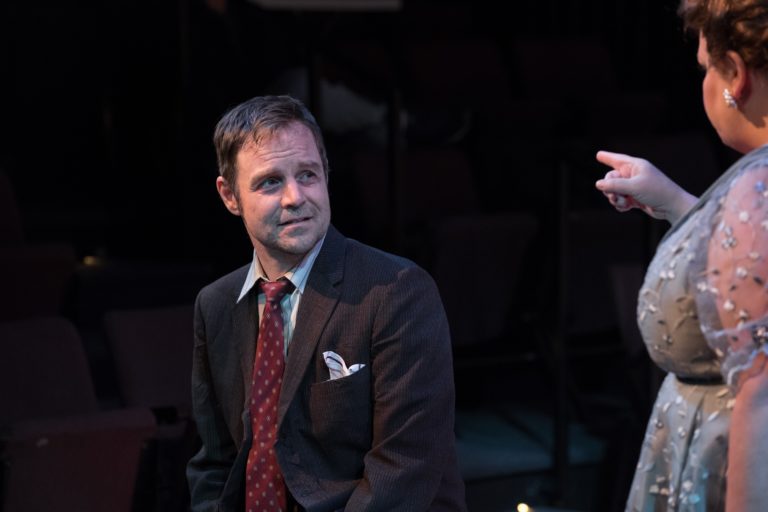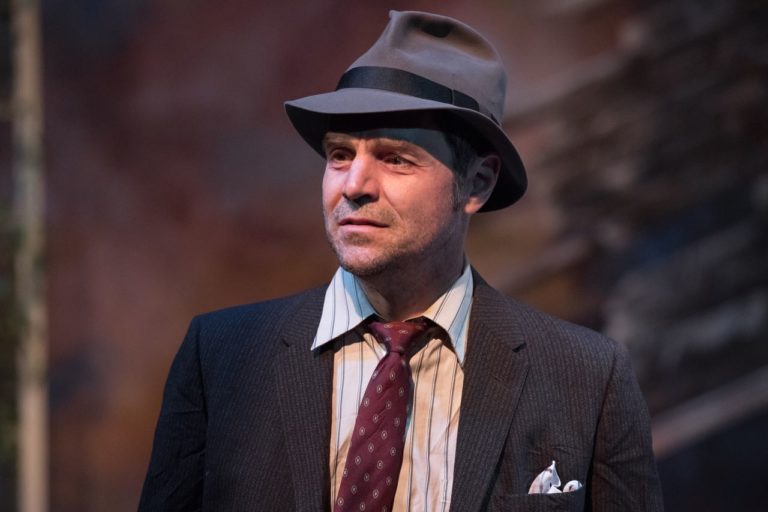Geoffrey Kent’s current role as Colorado’s most in-demand fight director began with a blow to the head. It wasn’t the kind of whack that led to an “a-ha” moment. It was more an “uh-oh” moment.
In 1994, Kent was performing in Shakespeare’s “Henry IV, Part I” with the Upstart Crow Theatre Company in Boulder. One scene called for swordplay, and one night during a performance, Kent accidentally struck a fellow actor on the head with a broadsword. The actor was OK, but the entire performance fell apart.
“I was horrified,” Kent recalled recently.
That’s when the then-young actor realized he needed to learn about stage combat.
“I thought, ‘There has to be another way,'” he said. “So what got me into combat training was the pursuit of not hurting anyone.”
On Monday Kent will be honored by the Colorado Theatre Guild with a Henry Award for “Outstanding Fight Direction” during CTG’s annual awards ceremony in Denver. Kent is fight director for this summer’s Colorado Shakespeare Festival, including the production of “Romeo and Juliet,” in which he plays Mercutio.
Duct tape and mop handles
Kent grew up in Lafayette and graduated from Centaurus High School in 1991. He laughs now that he was one of those kids who made play swords out of duct tape and mop handles, and joined a group that reenacted European battles from the Middle Ages. He calls it “sword fighting for girls’ attention.”
After the bungled fight on stage in 1994, Kent began studying stage combat. He attended the Society of American Fight Directors workshops in Las Vegas, Nev., and trained locally, too. In 1997, after the busiest fight director in Colorado left the state, it so happened that Kent was the most experienced stage combat person in the area. All of a sudden he began to get work as a fight director.
Kent quit his day job in 1999, and has made his living as an actor, fight director and teacher ever since. He’s served as fight director for nearly 400 productions the past 14 years and works regularly at CSF, the Arvada Center, Denver Center Theatre Company, Opera Colorado and elsewhere. Kent is one of only 40 fight directors in the country certified by the SAFD, and he served a two-year stint as the organization’s president, as well.
Serving the story
“I would imagine there’s a lot of fight directors that are very concerned with wanting to get as much action in as they can, and making it look as cool as they can,” said Benjamin Bonenfant, who plays Romeo in CSF’s “Romeo and Juliet.” “But certainly with Geoff, the story comes first. He’s always interested in and connected to the drama and how to use his skill and knowledge to inform who these characters are.”
Benaiah Anderson is the regional representative for the SAFD, and is an experienced stage combat director and performer. He plays Tybalt opposite Bonenfant and Kent.
“He’s going to talk with the director, he’s going to talk with the actors and see what they’re physically capable of,” Anderson said. “And with all those puzzle pieces — the world of the play, the emotion of the show, the safety of the actors — you get the physical storytelling.”
Philip Sneed, CSF’s producing artistic director, has worked with many fight directors in his 35 years.
“I’ve never had anyone come anywhere close to his capability to stage a very realistic and effective fight that is also completely safe, and tells a story,” he said of working with Kent.
Kent was first introduced to the world of Shakespeare when he saw a production of “Romeo and Juliet” at CSF in 1990. It’s one of his favorite Shakespeare plays to fight direct.
“Mercutio and Tybalt and Romeo, their stories can be told so many ways,” he said. “Was (Mercutio’s death) Romeo’s fault? Was Tybalt trying to kill Mercutio or was he trying to get Romeo? Did he kill Mercutio by accident?
“You have to decide all those things. Shakespeare gives you lines, but they’re all open to interpretation, and once you and the actors and the director decide, then you have to build the fight to fit that story.”
The rehearsal’s the thing
Roughly 10 hours of rehearsal goes into each minute of performed stage combat. Kent videos each rehearsal and sends the video with notes to the actors each night. In addition, most productions require the actors to gather at least 90 minutes prior to curtain each performance and rehearse the stage combat.
Stage fighting done well — whether it’s a full-on sword fight, or a simple stage slap — creates the illusion that it’s real, but doesn’t make the audience worry if the actors are going to survive.
“You want to transport the audience with excitement or comedy … but never have the audience fear for the actors’ safety,” Anderson said.
Multiple aspects of safety — eye contact, cues, physical distance, speed of action, timing — are layered into stage fights. That way if one aspect is off during a certain performance, others are there to cover. Once the storytelling is fleshed out and safety concerns are met, the fight director has to create the illusion of real violence.
One of the most challenging shows Kent fight directed was “1001” at the Denver Center Theatre Company in 2007. The epic re-imagining of “The Arabian Nights” tale calls for a woman to smash a man in the head with a brick, then cut off his arm with a scimitar in one scene.
Adding to the difficulty was the fact the play was staged in the round — taking away the ability to hide anything upstage from the audience — and that the actors weren’t allowed to get blood on the expensive silk that covered some of the stage. With the help of costume designer Kevin Copenhaver, Kent and the team devised a way for the actor to hide his real arm in a backpack behind his back. They built a fake arm and attached it to his body using magnets.
One side of the brick was real, and the other was made of foam, that was soaked with a thick, non-splattering fake blood. The actress smashed the actor on the head with the foam side, leaving large bloody spots, then slammed the real side of the brick to the ground, creating a loud authentic sound. When she grabbed the fake arm to cut it off, the actor released it with a trigger hidden in the backpack.
The illusion led to gasps from the audience during most performances.
“Every show has that challenge of the magic trick,” Kent said. “How can we make the audience believe?”
It’s not hard to make an audience believe Kent is having fun when he enters the Mary Rippon Theatre as Mercutio in CSF’s “Romeo and Juliet.” In reality, he’s having a blast.
“Strapping a sword on your hip and walking on stage is just about as cool as it gets,” he said. “I still feel like that kid with a duct-tape sword every time.”




